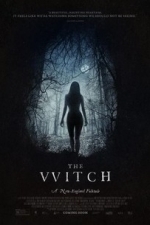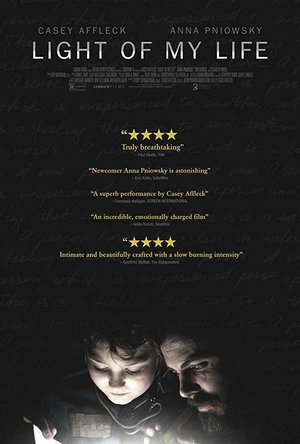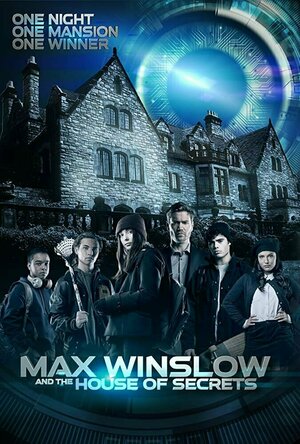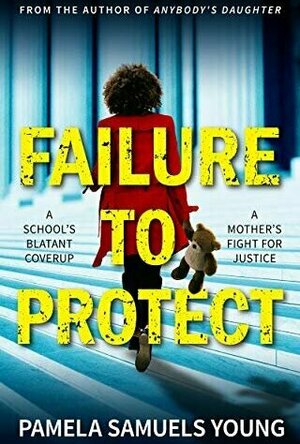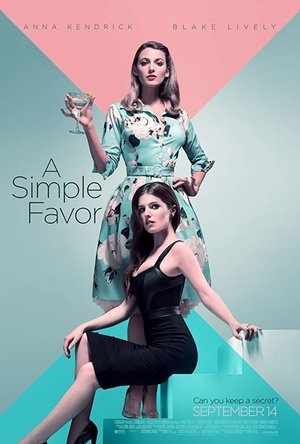Sean Freese (4 KP) rated The Witch (2015) in Movies
Jun 25, 2020
The full title is, The Witch: A New England Folktale. Like Grimm’s fairytales, American folklore has taken revisions over the centuries to become a palatable collection of juvenile life lessons. Anyone who has read the original versions of these stories knows how brutal, horrifying, and far removed they are from our current values. As much as I would not condone reading original classic witch tales to a small child, they do contain much deeper implications and ideas than the simple “Don’t tell lies” that are gleaned from modern revisions. What’s fascinating about The Witch is how familiar the setting and story is, without a single cliché or moment of prediction to speak of. The evil that was feared in 17th Century Puritan America has been so eclipsed by the human horrors of The Salem Witch Trials, that we have forgotten what it was to fear a witch.
We know these characters only by their Christian names. William removes his family from their Colonial settlement due to an incompatibility of faith. The colony of Puritans isn’t Christian enough. With his wife, Katherine, William takes his 4 children into the wilds of the Northeast. Airs of The Crucible envelope the setting. Common pronouns are replaced with “thines” and “thous”. Dialogue is delivered as if quoted from Shakespeare or the Bible itself. In the past, this oral dynamic has always sounded ardently rehearsed. Somehow, it’s natural here. Considering William’s rigorous faith, you might expect him to be an overbearingly shrewd father. He is in fact a loving and good man of his time; often a pushover. Katherine is the more fearsome parent, with a shrill voice and gaunt pointed face. While they do live in hardship, this is a good family. Once Fall deadens the colors and greys the skies, things begin to take a disturbing turn.
Ralph Ineson and Kate Dickie play the parents without an exaggeration of the material. Remarkable still are the actors portraying their children. Harvey Scrimshaw plays William’s 10-year-old son, Caleb, as natural as can be imagined. The dramatic beats of a horror movie come with taxing climactic moments and Scrimshaw acts beyond his years. Anya Taylor-Joy plays the eldest daughter Thomasin; a doe-eyed blonde beauty who plays the most relatable character of the flock. The dynamic between Caleb and Thompsin has notes of innocent sexual tension. Their secluded life leaves a great deal of new feelings that can’t be addressed due to their customs. These feelings lead to foreign temptations that are preyed upon by the timeless evil beyond the trees.
The greatest achievement of this film is how faithful it is to its setting and story, while keeping enough behind the veil to become engrossing. The tale feels as old as any, drawing from universal fears and motivations. How it draws you in, keeping you tied to the victims and their perspective while keeping the evil at arm’s length, shows a discipline of craft that greatly compliments the material. Much like vampires, witches have been trivialized and diluted by film into something superficially attractive and entertainingly evil. As with Noseferatu, seeing a witch living a damnable existence of ugliness is much more appropriate. If they’re ever beautiful, they won’t be for long.

Stick Pick
Education and Productivity
App
Join over 50,000 teachers, like EdTechChic, who says: "Say goodbye to your coffee can with popsicle...
Kirk Bage (1775 KP) rated Light of My Life (2019) in Movies
Jan 22, 2021
The facts are that he settled out of court for two sexual harassment claims, that in interviews later he would admit some guilt and shame towards. He never tried to hide it and seemed genuinely regretful of his part in whatever crimes took place. He never tried to deny it or belittle it or excuse it as something small and insignificant, he owned up and hung his head.
For which I’d be tempted to say, yes, he behaved like an asshole and abused his position, but is worthy of forgiveness, on probation that he learned from the mistake and never remotely did anything like it again. However, the media doesn’t forget, and in a personal and professional way he has been persona non grata ever since.
Like many others in the spotlight before him for nefarious reasons, I believe emphatically in saying it is possible to separate a person from their work. If someone has done something where they need to be in jail, then let the system take care of it, otherwise let them get on with life and continue to work. Affleck is such a talented actor that it is his performances that spring to mind above anything else by far, and that probably won’t change. I’d absolutely hate to think his negative reputation prevented him from doing the best work of his life.
One way to ensure some relative solitude and privacy whilst remaining at work, then, is to write, produce, direct and star in a small personal film about a father and daughter, alone for 90% of the movie, in a post apocalyptic wilderness. Affleck is the nameless “dad” to the pre-teen daughter he dotes on and will do anything to protect, named “Rag”, for reasons that are explained beautifully in the narrative.
Played by promising newcomer Anna Pniowsky, it is a testament to Affleck’s skill and sensitivity as actor and director that Rag always feels as important and centre stage as the “star” of the show. The film begins very unusually with a 7 minute static dialogue between the two, which demonstrates the relationship and energy of the film perfectly, and in such an interesting way. Pniowsky gives as good as she gets in terms of detailed characterisation, and the dynamic between the two is an absolute delight.
Inevitably, this film is always going to be seen as a poor cousin to The Road, starring Viggo Mortensen, from 2009. It is very similar, it can’t be denied. Even the idea of the parent ensuring “the light / fire” is kept alive within the child, considering that the survival of humanity in all senses is paramount, and supercedes the notion of survival at any cost. Dignity, kindness and non-violence must be maintained, or they will be lost. It is a message worth passing on – enough to make Affleck want to fly so close to the themes and tone of a bigger, well liked film. He must certainly have been aware of how similar they are.
It doesn’t always work, and I did find myself wishing for more action, or at least incident, rather than all the static talking scenes. Although they were often beautifully done, there were just one too many of them to keep the film fully engaging. The use of flashback, where we see the past they came from and the absent mother (presumed long dead) played by Elizabeth Moss, who does not get enough screen time to leave a mark, also doesn’t fully ring true.
Where it does work is in the simple beauty of the relationship between father and daughter. Her innocence and growing curiosity about the tainted world she is inheriting, and his single minded insistence on teaching her things his way and keeping her oblivious to the harshness of life for as long as possible. We begin to suspect his methods are not always the best, and that inevitably the time is coming where for good or bad she will have to find her own path without him.
Which leads to a very touching last 20 minutes I can’t possibly explain without leaving spoilers. If it wasn’t two hours but 90 minutes I believe the idea would have had more impact and not outstay its welcome. As it is, it is just a little flabby in the edit to be described as “great”, and might be otherwise described as slightly indulgent and naive, directorially. It is a tough one to pin down, because whilst I don’t think there is much wrong with it, I also don’t think there is enough right to fully recommend it to a wide audience.
I’m putting this one in the box marked “little seen gems”, intersecting with the one marked “near miss with potential”. When in a patient mood, this could be a film you relate to and enjoy. Just don’t go in expecting too much to happen and concentrate on what it means to be a parent in a cruel world. In that sense it has a lot to say and is well worth your time.
Lee (2222 KP) rated Max Winslow and the House of Secrets (2019) in Movies
Oct 13, 2020
Max heads into school, where we’re introduced to some more teens who are set to join her later on, including a social-media obsessed girl, a boy addicted to gaming and a boy who enjoys trolling people online. As they settle down at their desks, the face of eccentric billionaire Atticus Virtue (Chad Michael Murray) takes over all of the TV screens throughout the school. He tells them that five students are to be selected to spend the night in his high tech mansion, and undertake a series of games, with the winner becoming the new owner of the mansion. When the confirmation text messages start coming through to the student phones later that day, we already know most of those that receive the big green tick on their screens, so they head off to the mansion, ready to spend the night.
Atticus himself isn’t at the mansion to greet the group. Instead, an AI named Haven (voiced by Marina Sirtis) opens the door for them, orders a takeaway delivery and gives them their instructions for the night. Basically, whoever solves the most puzzles and earns the highest score wins the mansion!
The puzzles start off ridiculously hard, with a locked door requiring a six-digit code to open, and only three attempts allowed. Max spots three jars of candy in the room and automatically decides that the total pieces of candy in each jar can be combined into a six-digit number, obviously. And you’re not supposed to think about how she managed to get them in the right order, or why the plate of cookies on the table wasn’t included in the code…
From there, the points come a lot easier for the team, such as simply putting on a pair of sunglasses(!), before turning slightly sinister as the group separates and everyone heads off on their own. Haven begins to go a little bit rogue, although with her monotone delivery of thinly veiled threats, she never really comes across as scary as I think she is meant to be. The games become a way of showing each individual the error of their ways - narcissistic Sophia is trapped in a bathroom talking to her mirror reflection, which has now turned into a nastier version of herself, while others are trapped in VR scenarios designed to show them where they’ve gone wrong in life.
It’s at this point that the movie struggles. The VR recreations are mostly dull, while other scenes utilise some pretty dodgy VFX and there’s never any real feeling of peril or threat. The young cast, for the most part, give some pretty good performances. However, with a mediocre script, none of them is really given very much to work with. Consequently, some of them, particularly the character of Max, feel a little wasted, not fleshed out enough.
While entertaining at times, Max Winslow and the House of Secrets is too scary for young children and not dramatic or scary enough for adults to really enjoy. Hopefully, though, the teen audience that this is squarely aimed at will pick up on the strong moral messages at the heart of the movie and will manage to gain some enjoyment from it.

OurPact – Parental Control
Lifestyle and Utilities
App
OurPact is a breakthrough parental control app and family locator that enables parents to manage...

Homer - Kids Learn to Read App
Education and Entertainment
App
Welcome to Homer — the #1 learn to read program for kids ages 2-8, shown to increase early reading...
Heather Cranmer (2721 KP) rated Failure to Protect (Dre Thomas & Angela Evans #4) in Books
Nov 12, 2019
The plot for Failure to Protect was solid. Nine-year-old Bailey Lewis is constantly being bullied at her school. When something major happens, Bailey's mother, Erika, decides to sue the elementary school. However, the principal, Darcella, is more concerned with keeping the school's good record intact instead of worrying about bullied students. The principal will do whatever it takes to make sure her school's stellar reputation doesn't get soiled even if it means doing some bullying herself.
Pamela Samuels Young did such a stellar job with the world building. Her knowledge of the court process and justice system is fantastic. Young is an attorney, and it's obvious she knows her stuff. Unfortunately, the subject of bullying in schools is all too real, and sadly, many schools are more worried about their reputation and all the paperwork and time a bullying case would take than actually caring about a bullied student. This fiction novel reads like a true story. There are a few plot twists which make this book even more interesting! Failure to Protect also answered every question I had. There's no speculation in Failure to Protect, and there's also no cliffhangers. This book is part of a series, but it's the first book I've read in the series, and I feel like it works as a standalone.
The pacing in Failure to Protect is done perfectly. Every single paragraph, and every single chapter flowed smoothly into the next. Not once did I want to put this book down. It had my attention throughout! I was also a fan of the short chapters which I felt helped with the pacing.
The best thing about Failure to Protect, besides everything, were the characters. Each character had such a unique personality which really helped them to feel like a real person rather than just a character in a novel. I loved little Bailey, and I just wanted to hug her and let her know that I'd protect her against her bully. It was heartbreaking reading about all she went through in her young life from losing her father not too long ago to being relentlessly bullied in school and online. I also felt horrible for her mother Erika. She also went through two horrible tragedies including one a parent should never have to go through. I was constantly in her corner, and I kept rooting for her throughout the whole bullying ordeal with the school. Erika felt like what happened to Bailey was mostly her fault, and I wanted to tell Erika that sometimes it's not easy to know everything about our children. Dre was my favorite character. I enjoyed his thought process and how passionate he was about everything. It was obvious how much he loved his goddaughter Bailey. I loved how Angela grew as a character when it came to her relationship with Erika. At first, she wasn't big on Erika, but it was obvious how much she did end up caring for her. Angela and Jenny were both fantastic attorneys, and I loved how they were willing to dedicate all their time and knowledge for Bailey's case. Darcella, the principal, was such a horrible person. Young did a fantastic job at creating Darcella to be the antagonist. So many times I was so angry with Darcella. I wanted to just shake her and ask her why she didn't do anything for Bailey. Darcella does explain why she decided to overlook the bullying, but I just wanted to know why she bothered to work in a profession dealing with children if she didn't have any empathy. I was so annoyed with Darcella. I was also annoyed with Ethan Landers, Darcella's attorney. I know he was just doing his job at the end of the day, but it wasn't easy to read about how he could just side with the enemy. Zola, Bailey's teacher, was also an interesting character. She was so conflicted about doing the right thing, and I liked reading about why she chose to do what she did. Apache, Dre's best friend, was a minor character in Failure to Protect, but he gets a mention because I loved his scenes. He was such a character, and I loved how comical he was especially when it came to helping out Dre.
Trigger warnings in Failure to Protect include bullying, racism, sexual situations (although not too graphic), suicide, death, lying, alcohol, mentions of past drug use and selling, profanity, and mentions of violence.
All in all, Failure to Protect is an emotionally well written novel. It would make a fantastic Lifetime movie - at least that's what I kept thinking whilst reading it. The story line is something that unfortunately is so commonplace in a lot of schools. I would definitely recommend Failure to Protect by Pamela Samuels Young to those aged 18+. I think this is a book that everyone should read and can relate to on at least some level. If you do decide to read Failure to Protect (which you should), please know that you'll feel a vast range of emotions!
--
(A special thank you to Pamela Samuels Young for providing me with an eBook of Failure to Protect in exchange for an honest and unbiased review.)

I Like Books - 37 Picture Books for Kids in 1 App
Education and Book
App
"WOW... 37 stunning picture books for kids in one app. This is a MUST have for every parent with...
Bob Mann (459 KP) rated A Simple Favor (2018) in Movies
Sep 28, 2021
We are then introduced to the hyper-annoying single mum Stephanie Smothers (Anna Kendrick): someone so perky and goodie-two-shoes as a school helper that every other parent loathes her. What she does seem to have a talent for is filming cheesy “mom’s hints and tips” videos in her kitchen that she posts to her video blog.
Enter the polar opposite of Stephanie: the stylish, sophisticated, amoral and highly intimidating she-wolf called Emily (Blake Lively). On the excuse of play-dates between their sons, she seduces Stephanie with her swanky 5* lifestyle that she lives with her husband Sean (Henry Golding), a struggling writer. Given the oddness of the couple, there are more than a few hints – in line with the title of my review – that this is some kind of subtle grooming. But to what end?
How can someone so beautiful be so camera-shy? Anna Kendrick going for a cheeky snap of Blake Lively (and failing). (Source: GEM Entertainment).
When Emily suddenly goes missing without explanation, Sergeant Malloy (Andrew Moodie) has no shortage of suspects to investigate as Stephanie finds that she actually knew very little about the ghost-like Emily.
There is a surfeit of glossy style in Paul Feig‘s film. I’ve already enthused about the opening titles. But the stylish french-language music – coordinated by Theodore Shapiro – continues throughout, reaching a peak with Serge Gainsbourg’s sublime “Laisse Tomber Les Filles” over the equally entertaining end-titles.
Sharing confessions. A “BF” moment (and no… not “Best Friends”!). (Source: GEM Entertainment
But as a comedy thriller ther….
“HANG ON A MINUTE DR BOB! WHAT DID YOU JUST SAY? COMEDY THRILLER? I watched the trailer for this one, and it’s “Gone Girl” remade isn’t it? It wasn’t comedy! Even IMDB describe it as “Crime, Drama, Mystery”!”
Yes, quite, and therein lies the problem with this film. I found the trailers (the full trailer as well as the teaser trailer attached below) to be highly misleading about the “feel” of the film. The comedy is distributed throughout with some great comic put-downs (“Prudes are people too” coos Emily to Stephanie) and generally laugh-out-loud dialogue. So yes, it IS a “Gone Girl” or “The Girl on the Train” wannabe… but it’s with added ‘laffs’. Now this revelation might make the film appeal to you much more than the trailer did. But in my book, ‘thriller’ and ‘comedy’ are not genres to comfortably share a bed and for me the film became increasingly inconsistent. This inconsistency built to a finale where all semblance of plot and reality seemed to go right out of the window… it could have been an improv episode or “Who’s Line Is It Anyway?”.
The writer is Jessica Sharzer (who did the screenplay for “Nerve” which I very much liked). But I suspect the issue lies more with Paul Feig‘s background in comedies (“Bridesmaids”, “The Heat”, “Spy”) and he couldn’t resist spicing up the thriller with some out-of-place comedy. Which was a shame, since I really liked the overall thriller plot, and the dynamic built up between Kendrick and Lively.
Coming clean…ing. Anna Kendrick as an undercover mopper. (Source: GEM Entertainment).
Blake Lively (Mrs Deadpool of course) is actually staggeringly good as the unfathomable and slightly deranged Emily, and even Kendrick – who seems to have had a run of very so-so movies recently – is entertainingly quirky in this one.
I also enjoyed the performance of Rupert Friend (probably best known as Peter Quinn in “Homeland”) playing a vain and ego-centric fashion designer Dennis Nylon. Great fun.
Never trust a redhead. Emily being a-muse-ing. (Source: GEM Entertainment).
Was I entertained? Yes I was, so I am tempted to recommend you seeing this rather than not. But I was also irritated in equal measure…. I really felt from the opening scenes that this one had legs to make my Top 10 for the year. But no.
Please comment and let me know which side of the fence you sit on!
Rachel King (13 KP) rated The Lens and the Looker in Books
Feb 11, 2019
Backing up, I was very interested in the present-day time period of 2347 and the few details that Kaufman spared regarding this society. Unfortunately, not much is explained about how this society came to be. A brief explanation is given for the planetary population of 300 million, along with other random details interspersed throughout the book, such as every child born is paired with an A.I., people are implanted with a device that keeps disease and infection at bay, and parents are only allowed to have one child with a lottery sometimes allowing for a second child. The purpose of the History Camps are explained through the rebellious attitudes of the three main characters and how they can easily manipulate the system for their own entertainment. As a parent, the word that continually echoed through my head regarding these children in the Hard-Time History Camp is "Spoiled!" Though they are supposed to be learning about how the rebellion of the human populations of the past caused everything from war, to disease, to poverty and famine, the way the children are coddled and protected from any sort of real pain or hardship makes me wonder how these History Camps ever accomplished anything of lasting value in any child.
Once the children are brought to the real Verona and abandoned as orphans, they finally begin to get a taste of real difficulty and hardship, but this is where the believability ends for me. The children had a single day in the History Camp Verona to get acquainted with their roles, and they show up in the real Verona as near-experts, maneuvering the details of their jobs to accommodate for comfort and ease of use that the family they work for is not familiar with, of course all with the help and direction of a very convenient genie. On top of all of this, the three children become agreeable, cooperative, and hard-working practically overnight, with little sign of the rebellious tendencies that put them in a History Camp in the first place. These transitions in character development felt forced to me.
Another aspect that really bugged me from the beginning of the book was the awkwardness of the dialog throughout the book, specifically regarding the children's speech. It felt stilted and over-simplified, and slowed down my reading because I consistently felt that children today did not speak like this. Some of the speech of the people native to the real Verona also seemed strange, but I attributed that to the speech of the time period.
Many of the characters took on unique facets that made them rather memorable to me, such as Ugilino's looks and arrogance, Signora della Cappa's madness, and Shamira's artistic inclinations. The budding romance between Hansum, or "Romero", and Guilietta copies the Shakespearean play, "Romeo and Juliet", in many ways, down to the presence of a Father Lurenzano, and I have to wonder about Kaufman's motivations for working this tale into the plot. And again, their romance also felt forced and over-the-top, missing the reality-warping conviction that is obvious in the original Shakespeare story.
I also have to wonder how these advancements that the three children are introducing to 1347 Verona are actually affecting the progression of time, since this is a much harped-upon concern regarding time travel. The only thing that is apparent to both the children and the reader is the quaint changes made to the appearance of the genie. Something else that is also mentioned early on is that this is also the same time period as the Black Plague, which has yet to make an appearance. Hopefully, the next book in the trilogy will address these things, The Bronze and the Brimstone: The Verona Trilogy, Book 2.
This book seemed geared to appeal to pre-teens and young teens in many ways, but as an adult reader, it left much to be desired for me.
